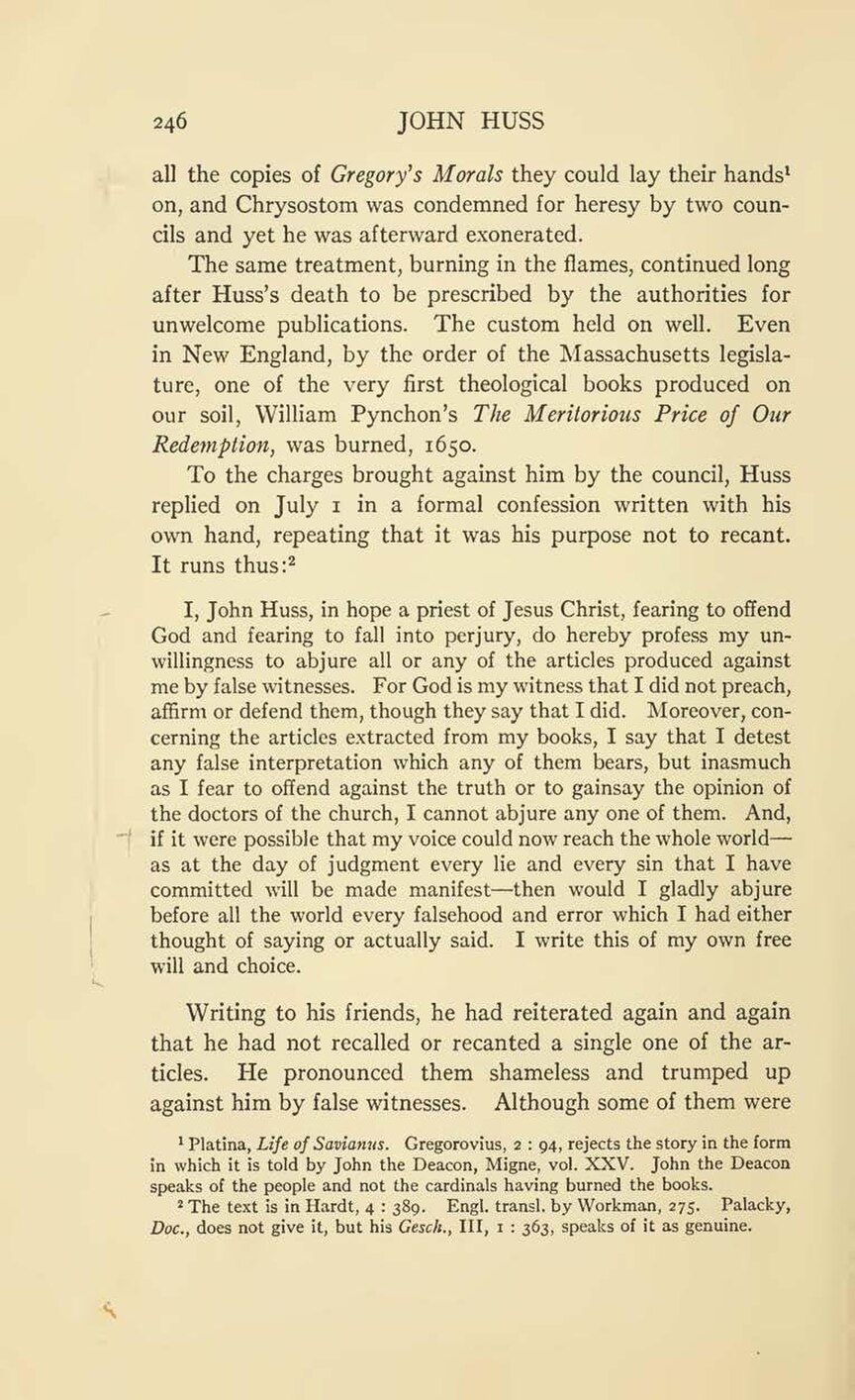all the copies of Gregory’s Morals they could lay their hands[1] on, and Chrysostom was condemned for heresy by two councils and yet he was afterward exonerated.
The same treatment, burning in the flames, continued long after Huss’s death to be prescribed by the authorities for unwelcome publications. The custom held on well. Even in New England, by the order of the Massachusetts legislature, one of the very first theological books produced on our soil, William Pynchon’s The Meritorious Price of Our Redemption, was burned, 1650.
To the charges brought against him by the council, Huss replied on July 1 in a formal confession written with his own hand, repeating that it was his purpose not to recant. It runs thus:[2]
I, John Huss, in hope a priest of Jesus Christ, fearing to offend God and fearing to fall into perjury, do hereby profess my unwillingness to abjure all or any of the articles produced against me by false witnesses. For God is my witness that I did not preach, affirm or defend them, though they say that I did. Moreover, concerning the articles extracted from my books, I say that I detest any false interpretation which any of them bears, but inasmuch as I fear to offend against the truth or to gainsay the opinion of the doctors of the church, I cannot abjure any one of them. And, if it were possible that my voice could now reach the whole worldas at the day of judgment every lie and every sin that I have committed will be made manifest-then would I gladly abjure before all the world every falsehood and error which I had either thought of saying or actually said. I write this of my own free will and choice.
Writing to his friends, he had reiterated again and again that he had not recalled or recanted a single one of the articles. He pronounced them shameless and trumped up against him by false witnesses. Although some of them were
- ↑ Platina, Life of Savianus. Gregorovius, 2: 94, rejects the story in the form in which it is told by John the Deacon, Migne, vol. XXV. John the Deacon speaks of the people and not the cardinals having burned the books.
- ↑ The text is in Hardt, 4: 389. Engl. transl. by Workman, 275. Palacky, Doc., does not give it, but his Gesch., III, 1: 363, speaks of it as genuine.
